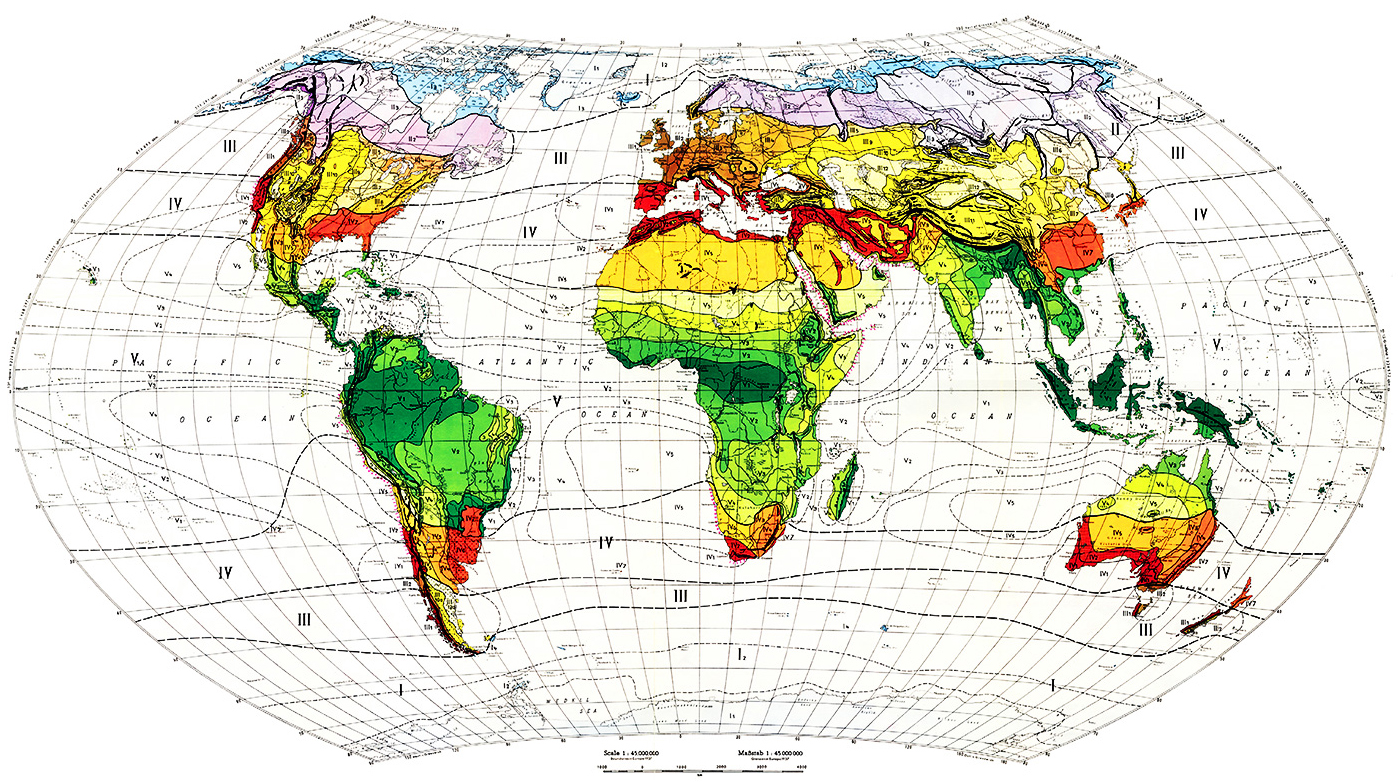EUROPE
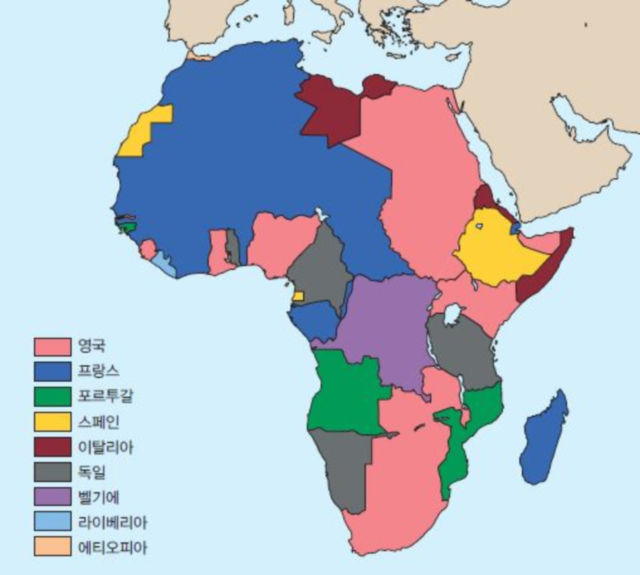
서구의 아프리카 분할
서구는 자신의 제국주의적 욕망에 맞게 아프리카를 분할해버렸다. 이런 제국주의적 분할은 현대아프리카 사람들의 모든 삶을 규정하는 구조가 되어 왔으며, 현대 아프리카의 비극적 기원이 되고 있다.
The division of Africa in the West
The West has divided Africa to suit its imperial desires. This imperial division has been the structure that defines the lives of modern African people and is the tragic origin of modern Africa.
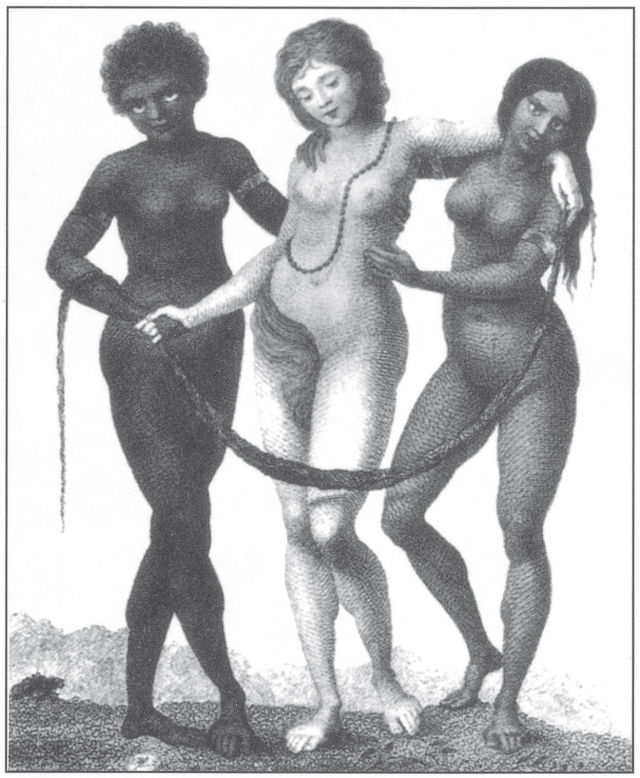
아프리카와 아메리카가 지탱해주는 유럽
18세기에 커피, 설탕, 차 등이 유럽에서 일상적으로 소비되면서 식민지의 중요성이 더욱 커졌다
•••
만일 이 생산품들이 없었더라면 서구가 과연 오늘날과 같이 될 수 있었겠는가?
Europe Supported by Africa and the Americas
In the 18th century, coffee, sugar, tea, etc. became more important as they were routinely consumed in Europe.
•••
If it weren't for these products, could the West be what it is today?
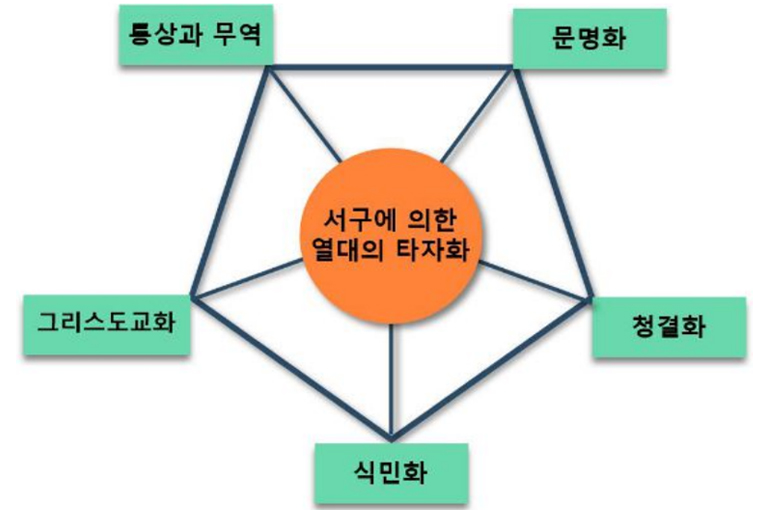
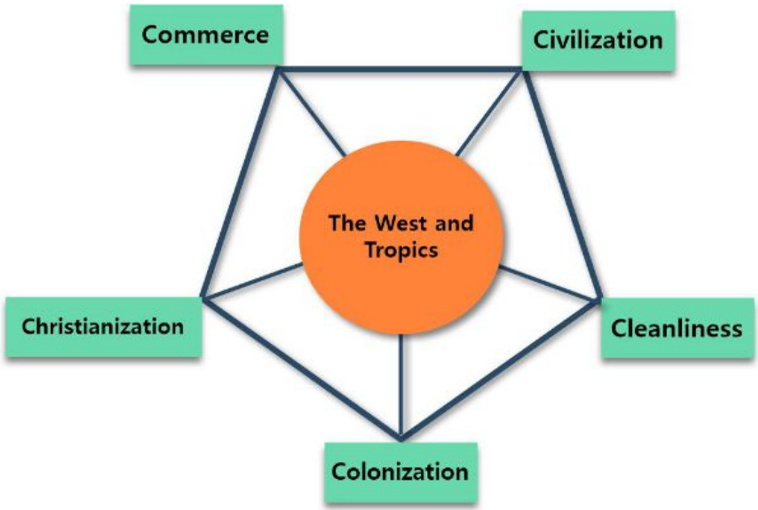
서구의 열대 타자화 체제
유럽 정체성에 관한 역사적 논의는 15세기부터 17세기에 걸쳐서 이루어지다가 20세기로 건너뛴다. 서구중심주의 역사는 유럽이 18세기부터 두 세기에 걸쳐서 열대 아프리카, 아시아, 라틴아메리카에 대한 영토 정복과 식민 지배를통하여 자신의 정체성을 어떻게 만들어갔는지에 대해 본격적으로 다루지 않고거의 모두 우회한다. 서구중심주의 역사에서는 열대가 서구 정체성을 어떻게만들어갔는지에 대해서는 침묵하는 동시에 은폐, 배제시켜 왔다. 특히 열대가본질적으로 서구 정체성의 형식과 내용을 역사적으로 만들어왔기 때문에, 서구의 은폐가 악랄한 것이다.
The West and Tropics
Historical deliberations regarding European identity have been documented from the 15th to the 17th centuries, with a notable gap until the 20th century. The narrative of Western-centricity has largely overlooked the significant role of Europe in shaping its identity through territorial expansion and colonial dominance in tropical regions of Africa, Asia, and Latin America during the 18th and 19th centuries. The discourse on Western-centricity has remained conspicuously silent on how the tropics contributed to the formation of Western identity, choosing instead to obscure and marginalize this aspect. Notably, the tropical have played a pivotal role in shaping the historical essence and characteristics of Western identity, a fact that has been deliberately obscured by Western narratives.
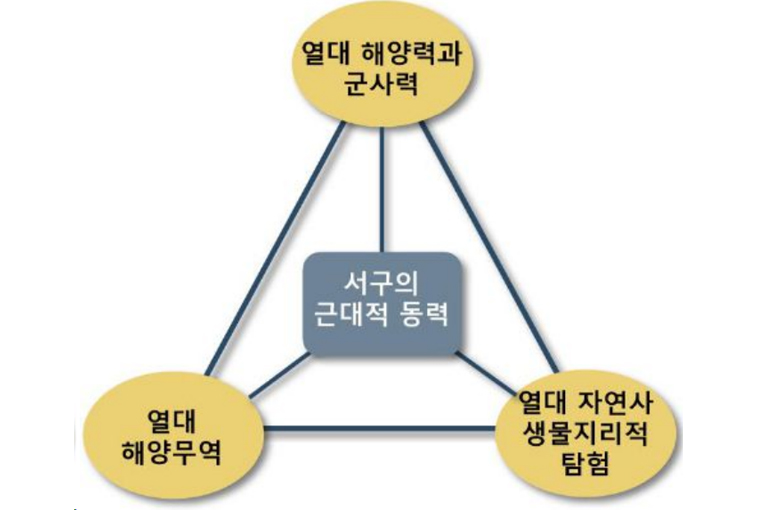
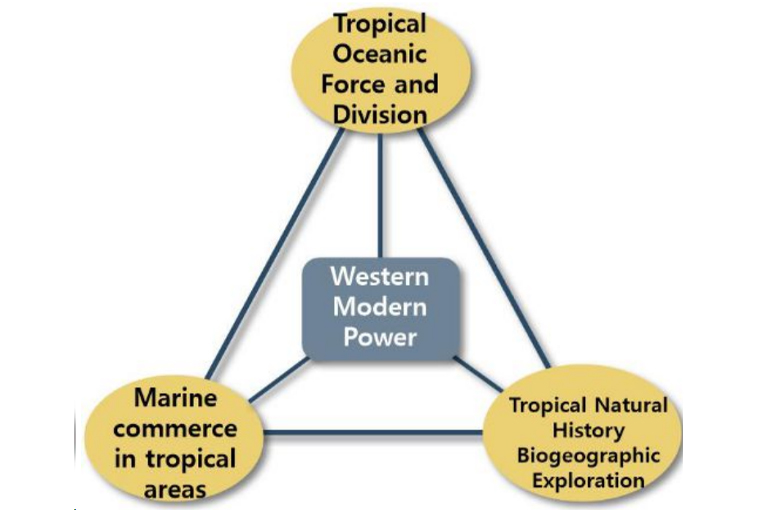
서구의 근대적 동력
열대 해양력을 서구의 열대에 대한 생물지리적 탐험, 해양 군사력에 의한 식민화 사업, 열대 해양무역과 결합시켜보면, 서구적 근대를 만들어갔던 기본적인 동력이 바로 위 3요소임을 알 수 있으며, 이러한 3요소가 서구 정체성의 하부 구조를 형성했음을 알 수 있다.
Western Modern Power
Combining the utilization of tropical ocean resources with Western biogeographic exploration of tropical regions, colonization initiatives facilitated by naval military strength, and the establishment of tropical marine trade routes demonstrate that the fundamental catalysts of Western modernity encompass the aforementioned three elements. These factors collectively laid the groundwork for shaping Western identity.
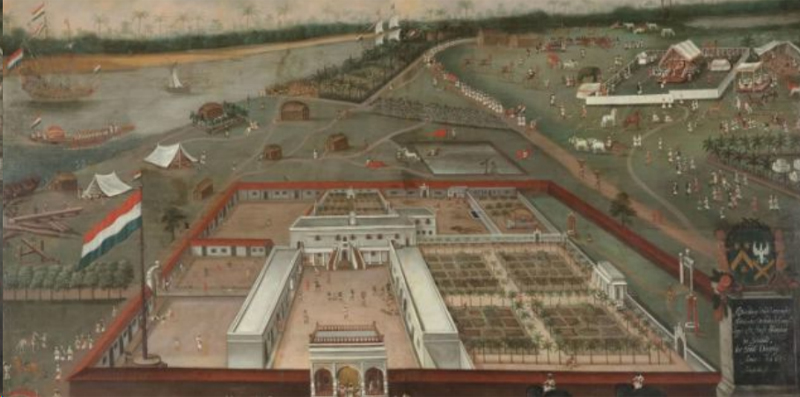
네덜란드 동인도회사
17세기 네덜란드는 영국이 부러워할 정도로 네덜란드 동인도회사를 통하여 식민지 개척에 나섰다. VOC는 인도양과 동남아시아의 주요 해양무역 도시에 상관들을 설치했으며 광범위한 해양무역 네트워크를 만들었다. VOC는 또한 군사기구였으며, 네덜란드가 열대 아시아의 해양 주권을 장악하는 데 없어서는안 될 외교기관이자 정부에 버금가는 강력한 권력 체제를 갖춘 ‘국가 속의 국가’로 군림하였다.
Vereenigde Oost-Indische Compangnie
During the 17th century, the Netherlands initiated colonization efforts in the region through the Dutch East India Company, which sparked jealousy from Britain. The VOC (Vereenigde Oost-Indische Compagnie) established partnerships in strategic maritime trading centers throughout the Indian Ocean and Southeast Asia, establishing a vast maritime trade network. Moreover, the VOC operated as a military force, allowing the Netherlands to rule as a 'state within a state' with a strong power hierarchy resembling the central government, and a diplomatic structure essential for asserting dominance over maritime sovereignty in tropical Asia.
